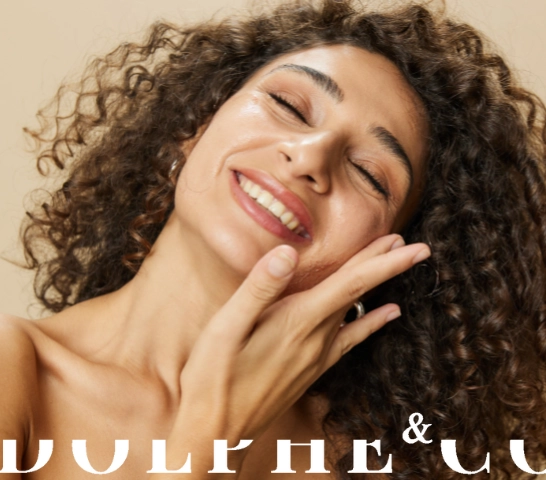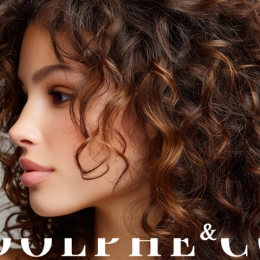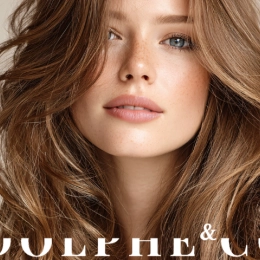Shiny, strong, and vibrant hair — that’s a dream for many of us. You might try beauty products, treatments, and routines, yet see no lasting results. But have you ever considered looking at your plate?
Our hair is a reflection of our health and well-being. A targeted, balanced diet can transform your hair from roots to ends.
Today, we’re diving deep into the link between nutrition and hair health. We’ll discover the essential minerals and nutrients that serve as pillars of healthy, glowing hair and explore simple tips to adopt.
Ready, set, eat!
Why Does Nutrition Affect Hair Health?
Hair is a complex structure, and to properly support it, we must understand its biology.
Hair is mainly composed of a protein called keratin (responsible for strength and elasticity), water (which keeps it hydrated and flexible), and lipids (which protect the hair's outer layer).
Hair grows in cycles — growth, rest, and shedding — and each phase requires specific nutrients to function optimally, renew, and stay strong.
Many factors can disturb this delicate cycle: genetics, environment (pollution, stress, sun), and nutrition. Deficiencies are among the main causes of hair problems, leading to dullness, breakage, and even hair loss or alopecia.
Key Nutrients for Healthy Hair
Proteins: They are the building blocks of keratin. A deficiency leads to thinner, weaker hair and eventually hair loss.
You can find protein in fish, eggs, lean meats (chicken, turkey, pork), or plant-based alternatives like lentils, beans, and tofu.
Essential Vitamins
Vitamin A: Encourages sebum production, which hydrates the scalp.
It’s found in colorful fruits and vegetables like carrots, melons, tomatoes, apricots, and herbs like parsley.
Vitamin B7/B8 (Biotin): Plays a key role in hair growth and keratin production. A deficiency weakens the hair fiber.
Found in foods like eggs, avocados, and almonds.
Vitamin C: Enhances iron absorption and protects hair from oxidative stress (UV rays, pollution, smoking, stress).
Citrus fruits and kiwis are great sources of vitamin C.
Vitamin D: Stimulates hair follicles and extends the growth phase.
Produced through sun exposure, but also found in fatty fish and eggs.
Minerals
Iron: Vital for transporting oxygen to hair follicles. Deficiency can lead to hair loss.
Rich sources: lentils, spinach, and red meat.
Zinc and Selenium: Crucial for growth, keratin production, and scalp health.
Found mostly in seafood.
Essential Fatty Acids
Omega-3 and Omega-6: They hydrate, strengthen, and add shine to hair. Found in fatty fish (salmon, tuna, mackerel), flaxseed oil, walnuts, and chia seeds.
A Balanced Diet for Healthy Hair
Healthy hair isn’t just about using the right products. Nutrition is a core factor in hair beauty and vitality. For strong, shiny, growing hair, your diet must be rich in essential nutrients and well balanced.
The 5 Dietary Pillars for Healthy Hair
- Choose unprocessed foods
- Eat a variety of fruits and vegetables
- Ensure adequate protein intake
- Select whole grains
- Incorporate healthy fats
Supplements: A Boost for Your Hair
Your diet may not always provide every nutrient you need. That’s where supplements come in. Designed to complement your meals, they deliver concentrated doses of essential vitamins and minerals to enhance your hair’s health and beauty. They’re especially useful for:
- Nutrient deficiencies — even with a healthy diet, some nutrients can be hard to get.
- Persistent hair problems — like breakage, thinning, dullness; ingredients like keratin and biotin can help.
- Periods of stress or fatigue — supplements support the body and limit the impact on hair growth.
Hydra-Hair: A Complete Hair Supplement
Designed to support the hair, skin, and nails, Hydra-Hair includes rigorously selected ingredients:
- Marine collagen: Strengthens and improves hair elasticity.
- Amino acid complex: Supports protein synthesis and overall hair health.
- Natural keratin: Repairs and reinforces the hair fiber.
A healthy, balanced diet is the foundation of great hair. It promotes growth, shine, and resistance. But when your hair needs a little extra “boost,” supplements can be a great ally — just be sure to consult a healthcare professional before starting any supplement.
Haircare Habits to Adopt
Beyond nutrition, daily habits are crucial for maintaining beautiful, healthy hair. A poor haircare routine can weaken strands and accelerate breakage. Here are some smart practices to adopt:
- Limit heat styling: Excessive heat damages hair. Let it air-dry when possible or use heat protection before styling.
- Reduce shampoo frequency: Frequent washing strips natural oils. Use a mild, natural shampoo and alternate with nourishing treatments.
- Hydrate and nourish regularly: Weekly hair masks or oil treatments (argan, coconut, castor) strengthen and protect hair.
- Brush gently: Aggressive brushing breaks hair and irritates the scalp. Use a wide-tooth comb or natural bristle brush, starting from the ends.
- Trim ends regularly: Even if you want to grow your hair, trimming every three months prevents split ends and keeps hair strong.
- Consult a hair professional: They’ll recommend cuts and care suited to your hair type while preserving its health.
By combining a balanced diet with good hair habits, you give your hair the best chance to shine, stay strong, and radiate vitality!





